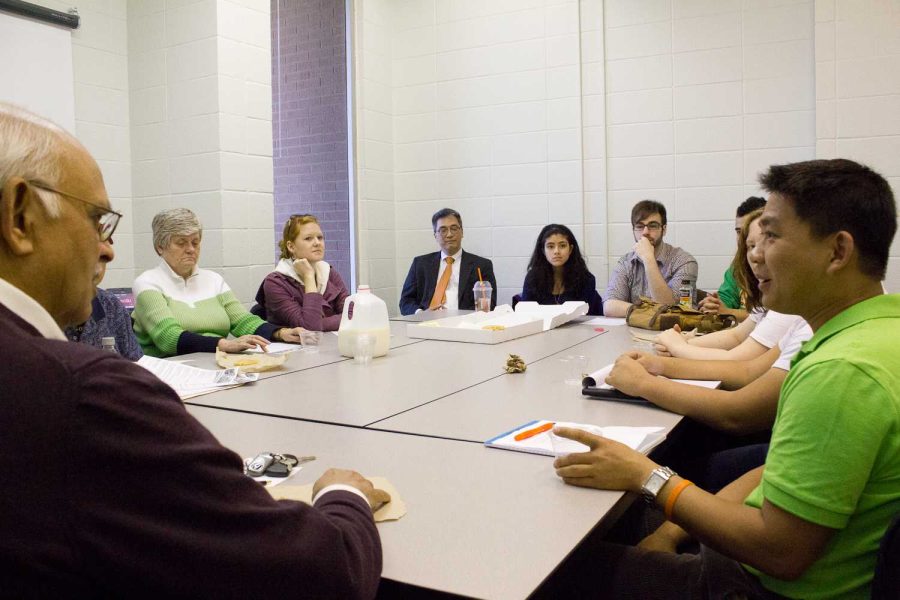When Dr. Krishna Han gets asked the question, “where are you from?” when first meeting someone, he gets angry.
This is the question that motivated him to organize the discussion entitled “where are you from?” as a part of the University’s Inaugural Asian American Heritage week.
The discussion took place on Wednesday afternoon and was attended by about 25 students and faculty who wanted to learn about and discuss the motivations of asking this question and the impact that a question like this can have on a person.
When people ask this question to an Asian American, Dr. Han said it is important to know the intent of their question.
“The feeling depends on the context,” he said. “Are they asking to get to know you or for other reasons?”
Attendees of the talk discussed the different meanings that a question like this can mean to an Asian American.
“There is a difference between intent and impact when you ask a question like that,” Han said.
To an Asian American, this question can be taken as meaning they do not belong here, even if they were born here. This question makes people feel like they are ‘the other,’ or that they are being looked down upon.
Others said that they simply ask the question as a means to get to know the person better, but that underlying societal influences may impact the intent behind their inquiry.
Freshman Christina Steward said that if people want to be correct there is another, more direct, question they should ask.
“People should ask ‘what ethnicity are you?’” Steward said.
She said this question is direct and tells the person exactly what you want to know without beating around the bush.
Han said he has been to other college campuses where people are not as accepting of people of other ethnicities, but Bowling Green is much more diverse and accepting.
“I thought it was really good,” Steward said. “There are not always Asian panels … so it was good to learn about a different experience.”
Larry Chan, Associate General Counsel, said the discussion was a good way to address Asian stereotypes.
“I hope people take away the idea that we need to look at people on an individual basis,” he said. “Learn about them based on their personality and not the color of their skin or the way their face appears.”














